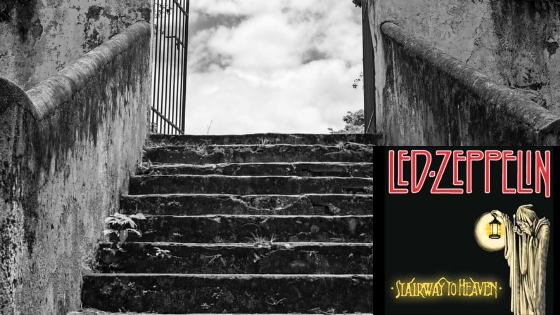Update from our previous blog post The Song Remains the Same: Jury Shows a Whole Lotta Love for Zeppelin’s Stairway to Heaven. Written by Sarah Teitelman with some help from Chris McHattie.
On September 28, 2018, the 9th U.S. Circuit Court of Appeals partially vacated the prior Central District’s verdict that Led Zeppelin’s Stairway to Heaven did not infringe on Spirit’s 1968 song Taurus and remanded the case for a new trial – the Appeals Court held that the jury was giving incorrect instructions.
In 2015, Michael Skidmore, the trustee for deceased Spirit band member Randy Wolfe, sued Led Zeppelin for copyright infringement alleging that Zeppelin “had access to Taurus and copied protected expression in Taurus to create Stairway to Heaven and is liable for direct copyright infringement.” At trial, Wolfe was adjudicated to be the copyright owner as the composer of Taurus, but the jury held in favor of Led Zeppelin finding that while Led Zeppelin band members had access to Taurus, the two songs were not substantially similar.
On appeal, Skidmore’s core arguments were: (1) that the District Court erred by failing to instruct the jury “that [the] selection and arrangement of otherwise unprotectable musical elements are protectable”, (2) that the District Court erred by failing to instruct the jury regarding “originality”, and (3) that the District Court erred in not playing the sound recordings for the jury to prove substantial similarity and access.
As to the first and second arguments, the Ninth Circuit found that the jury may have been misled because the District Court’s jury instructions were “erroneous and prejudicial” to Skidmore. The Ninth Circuit found that the District Court failed to properly instruct the jury that the selection and arrangement of otherwise unprotectable elements creates a protectable new work and the impact of that error on the determination of “originality.” Thus, the jury instructions “likely led the jury to believe that public domain elements—such as a chromatic scale or a series of three notes—were not protectable, even where there was a modification or selection and arrangement that may have rendered them original.” The Ninth Circuit found this to be especially problematic and prejudicial to Skidmore because it “undermined the heart of [his] argument that Taurus and Stairway to Heaven were extrinsically substantially similar.”
The Ninth Circuit also found that the District Court did not err when it denied playing the sound recordings of Taurus for the jury to prove substantial similarity. The panel came to this conclusion because it determined that the deposit copy for unpublished works under the Copyright Act of 1909, in this case the sheet music for Taurus, defines the scope of copyright protection not its performance.
However, the Ninth Circuit found that the District Court abused its discretion by excluding the sound recording to prove access because its probative value outweighed the low risk of unfair prejudice to Led Zeppelin. The panel acknowledged and validated the District Court’s concern “that allowing the jury to hear the recordings would confuse them.” Nonetheless, the Ninth Circuit explained that “the risk of unfair prejudice or jury confusion was relatively small and could have been reduced further with a proper… [instruction] that the recordings were limited to the issue of access and that they were not to be used to judge substantial similarity.” That means, on remand, that the jury may finally hear both Taurus and Stairway to Heaven.
Based upon our reading of this decision, we believe that Led Zeppelin 50th anniversary this year may not be so golden. Under the inverse ratio rule, a finding of copyright infringement may be based upon a lesser degree of substantial similarity if “a high degree of access is shown.” Thus, on remand, the jury may go the other way if they find that Led Zeppelin had a high degree of access to the recording after observing Led Zeppelin members listening to the sound recording of Taurus at trial. Since Spirit played Taurus during its nationwide tours in the late 1960s, which Led Zeppelin served as Spirit’s opening act for, the access issue will certainly be a major focus on remand.


